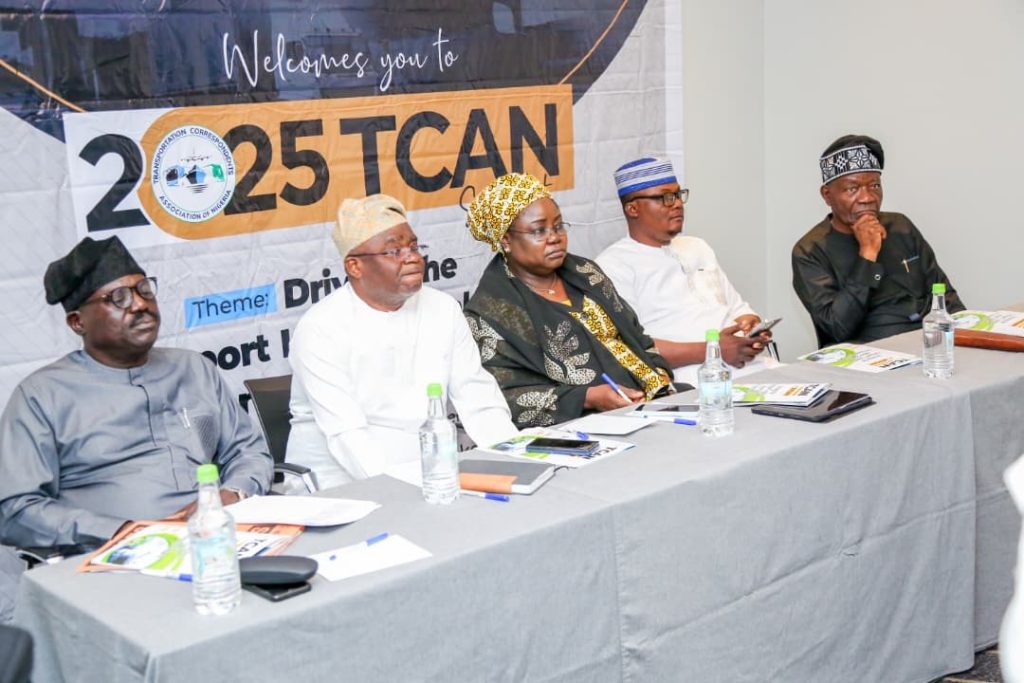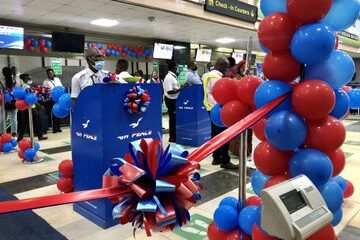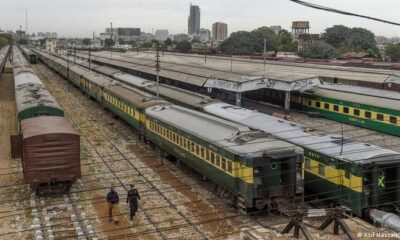RAIL
Kano-Maradi rail project to reach Katsina by December

…ready for completion first quarter
Nigeria’s minister of transportation, Sa’idu Ahmed Alkali has said the Kano-Maradi rail project will reach Katsina by December, 2025 and ready for completion by March 2027.
The minister made this known Thursday this week at the Second Transport Summit of the Transportation Correspondents Association of Nigeria (TCAN) at Radisson Hotel, Lagos
Alkali who was represented by the Managing Director, Nigerian Railway Corporation (NRC), Dr Kayode Opeifa, said the Kaduna-Kano and Kano-Maradi ongoing rail project recorded appreciable execution progress from five per cent to 15 per cent at the inception of this administration to over 50 per cent and 60 per cent respectively.
He stated that, the Federal Executive Council recently approved the construction of one modern Bus Terminal in Abeokuta (South-West), Onitsha (South-East), Warri (South-South), Kano (North-West), Lokoja (North-Central) and Gombe (North-East).
This development, he said will no doubt address the challenges of operational inefficiencies, intra-city traffic congestion, unregulated motor parks and safety harzards affecting passengers and transport operators across the country.
He mentioned that the ongoing rail modernisation projects from Lagos-Kano, the rehabilitated Old Narrow Gauge from Lagos to Kano and the ongoing rehabilitation of the Old Narrow Gauge from PortHacourt-Maiduguri with many more new projects like the High Speed Rail from Lagos to Abuja, Lagos to Kano and PortHacourt to Abuja are sufficient indicators of the administration’s concerns for the development of the transportation sector in Nigeria.
He said it is significant to emphasize that while the Port-Hacourt to Aba segment of Port Hacourt-Maiduguri ongoing rail modernization project has been completed and put into use.
Also speaking, Minister of Marine and Blue Economy, Adegboyega Oyetola, said the National Marine and Blue Economy Policy aimed at reducing logistics costs, enhancing trade competitiveness, and unlocking private sector investment in Nigeria’s maritime and transport sectors.
Oyetola hinted that the National Marine and Blue Economy Policy aimed at reducing logistics costs, enhancing trade competitiveness, and unlocking private sector investment in Nigeria’s maritime and transport sectors.
Oyetola who was represented by Director of Maritime Services, Dr. Mercy Ilori, said the policy lays the groundwork for seamless integration across road, rail, barge, and pipeline networks.
“Our goal is to lower the cost of doing business, improve cargo turnaround times, and create a more attractive environment for private capital. This positions Nigeria as a logistics hub for West and Central Africa,” Ilori said.
She outlined key initiatives already in motion, including; Operationalisation of the Lagos–Ibadan Standard Gauge Rail line for cargo evacuation. Expansion of barge services at Lagos and Onne ports, Completion of the Apapa-Oshodi Expressway, and Commissioning of the 27km Lekki Port Access Road.
The minister also highlighted the development of inland dry ports in Ibadan, Kaduna, Kano, and Funtua as a strategy to decongest seaports and strengthen regional trade routes.
He emphasized the importance of collaboration between stakeholders including shipping lines, terminal operators, freight forwarders, investors, and regulators for the policy to succeed. He further called for the adoption of digital, green, and climate-resilient logistics solutions to keep Nigeria competitive in the global market.
Earlier in his speech, Chairman TCAN, Tola Adenubi, said while Nigeria is still grappling with the absence of a national transport policy that should guide her modes of transport, the pressure exerted on the fewer roads built by government (to last decades) by petroleum tankers and container carrying trucks have left many roads in sorry states, bringing up the question of adequate use of other modes of transportation to freight goods and services across the country.
He said Nigeria at 65, Nigeria is yet to have an acceptable protocol to guide the entire transport system leaving the space open to all comers to do as they please.
MIKE OCHONMA
EDITOR
-

 AVIATION5 years ago
AVIATION5 years agoPhoto News: Air Peace commence flight operations to South Africa
-

 Car News5 years ago
Car News5 years agoPolestar is recalls over 2000 electric cars due to software bug
-

 RAIL5 years ago
RAIL5 years ago36 Killed in Pakistan Train Accident
-

 Technology5 years ago
Technology5 years agoCommon mistakes in CO₂ emissions calculations
-

 Business5 years ago
Business5 years ago2016 Volvo XC60 review and specifications
-

 Reviews5 years ago
Reviews5 years ago2021 Audi A6 Specifications and Review
-

 SAFETY / CAR CARE5 years ago
SAFETY / CAR CARE5 years agoHandbrake warning light; what it means and what to do
-

 Reviews3 years ago
Reviews3 years agoDebutant Kia’s new K8 sedan benchmarks luxury, safety
